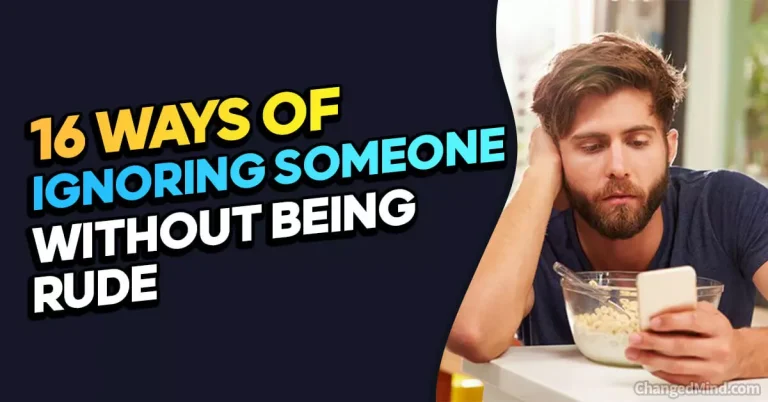Are you ready to dive into the world of friends with benefits (FWB) relationships? Wondering how to find friends with benefits? Look no further!
In this comprehensive guide, we’ll navigate the exciting realm of casual connections with a playful twist. We’ll spill the beans on the dos and don’ts, the awkward and awesome, and everything in between.
Whether you’re new to the FWB scene or looking to brush up on your skills, this article will provide valuable insights, practical advice, and maybe a few humorous anecdotes along the way.
So, let’s embark on this adventure together and discover the secrets to finding friends with benefits! Keep reading to unlock a world of thrilling and fulfilling connections.
What Are Friends with Benefits (FWB)?
Friends with benefits refers to a type of relationship where two individuals engage in casual sexual activities while also maintaining a friendship. It’s a unique dynamic that combines the physical intimacy of a romantic relationship with the freedom and flexibility of a platonic friendship.
The Growing Popularity of FWB Relationships
In recent years, the popularity of FWB relationships has been on the rise. Many people find these arrangements appealing because they offer a level of companionship and intimacy without the commitments and expectations typically associated with traditional romantic partnerships. The freedom to explore physical connections while maintaining emotional independence has become an attractive option for individuals seeking casual connections.
Importance of Setting Clear Expectations
When it comes to FWB relationships, clarity and open communication are crucial. Setting clear expectations from the beginning helps both parties understand the boundaries and avoid misunderstandings or hurt feelings down the road. By openly discussing your intentions and desires, you create a foundation of mutual understanding and respect.
Now that we’ve laid the groundwork, let’s move on to the next step: assessing your readiness for FWB relationships.
40 Easy Tips of How To Find Friends with Benefits
Here are 40 easy tips on how to find friends with benefits in 2023:
- Be clear about your intentions: Communicate openly from the start about your desire for a friends with benefits relationship.
- Utilize online platforms: Join dating apps or websites that cater to casual connections.
- Set boundaries: Establish clear boundaries and expectations with your potential FWB.
- Explore social circles: Look within your existing network of friends or acquaintances for potential FWB candidates.
- Be upfront and honest: Express your desires and intentions when approaching someone for an FWB arrangement.
- Prioritize open communication: Maintain regular and transparent communication with your FWB to ensure everyone’s needs are met.
- Attend social events: Engage in activities and events where you can meet like-minded individuals who are open to casual relationships.
- Take it slow: Build a friendship first before diving into an FWB arrangement to establish a strong foundation of trust.
- Use humor: Inject humor and light-heartedness into your conversations to create a comfortable and enjoyable atmosphere.
- Be respectful: Treat your FWB with kindness and respect, understanding that their boundaries and emotions should be acknowledged.
- Regularly check-in: Have open conversations about the status of your FWB relationship to ensure both parties remain on the same page.
- Explore mutual interests: Find common hobbies or interests to enhance your connection beyond the physical aspect.
- Be selective: Choose your FWB partner wisely by considering compatibility and mutual attraction.
- Practice safe sex: Prioritize the use of protection and get regularly tested for sexually transmitted infections.
- Avoid attachment: Keep emotions in check and remember the primary goal of an FWB relationship is to enjoy each other’s company without romantic expectations.
- Be open to change: Understand that feelings may evolve, and it’s important to reassess the arrangement if emotions become complicated.
- Maintain discretion: Respect each other’s privacy and keep the details of your FWB relationship confidential.
- Seek support: Connect with friends or online communities that understand and support the concept of friends with benefits.
- Be prepared for the end: Recognize that FWB relationships may have a limited lifespan and be prepared for the possibility of transitioning back to being friends.
- Enjoy the journey: Embrace the adventure, have fun, and remember to prioritize your own happiness and well-being throughout the process.
- Be confident: Embrace your own worth and exude confidence when seeking an FWB connection.
- Be open-minded: Keep an open mind and be willing to explore different types of connections and experiences.
- Use your network: Seek referrals from friends who may know someone interested in an FWB arrangement.
- Emphasize consent: Prioritize obtaining enthusiastic consent from your FWB partner in all aspects of your relationship.
- Learn from experiences: Reflect on past FWB experiences to identify what worked well and what you’d like to improve upon.
- Seek clarity: Have conversations early on to ensure both parties have a clear understanding of the arrangement.
- Establish a safe word: Consider implementing a safe word that can be used to pause or stop any activities if necessary.
- Embrace spontaneity: Allow for spontaneous moments and adventures to add excitement to your FWB dynamic.
- Be respectful of schedules: Respect each other’s time and commitments, understanding that flexibility is key in casual relationships.
- Practice self-care: Prioritize self-care to maintain your emotional well-being while navigating FWB connections.
- Emphasize friendship: Nurture the friendship aspect of your FWB relationship, enjoying each other’s company beyond the physical connection.
- Communicate sexual preferences: Openly discuss sexual preferences, desires, and boundaries to ensure a satisfying experience for both partners.
- Expand your horizons: Explore different types of FWB arrangements, such as non-exclusive or open relationships, to find what suits you best.
- Enjoy the freedom: Embrace the freedom of a casual relationship, allowing yourself to explore your desires without the constraints of traditional dating.
- Keep expectations in check: Manage expectations and avoid assuming that an FWB relationship will automatically evolve into something more serious.
- Be patient: Finding the right FWB connection may take time, so be patient and trust that the right person will come along.
- Embrace individuality: Celebrate each other’s uniqueness and individuality, appreciating the diverse qualities that make your connection special.
- Practice empathy: Show understanding and compassion towards your FWB partner, acknowledging that they have their own wants, needs, and boundaries.
- Communicate outside of the bedroom: Foster communication beyond the sexual aspect, engaging in conversations and activities that deepen your bond.
- Trust your instincts: Trust your gut feelings when it comes to selecting an FWB partner and engaging in specific activities—your intuition can be a powerful guide.
With these 40 easy tips, you’ll be well-equipped to navigate the exciting world of finding friends with benefits in 2023.
Assessing Your Readiness for FWB

Before diving into the world of friends with benefits, it’s essential to assess your readiness for this type of relationship. Evaluating your emotional availability, understanding your relationship goals, and distinguishing FWB from a committed relationship will help set you up for a successful experience.
Reflecting on Your Emotional Availability
To embark on an FWB arrangement, it’s crucial to be honest with yourself about your emotional readiness. Ask yourself:
- Can you separate physical intimacy from emotional attachment?
- Are you open to the idea of a non-exclusive relationship?
- Do you have the capacity to handle potential changes in feelings?
Understanding your emotional boundaries and being honest about your capabilities will prevent any unexpected emotional turmoil down the road.
Identifying Your Personal Relationship Goals
Before pursuing a friends with benefits relationship, take a moment to identify your personal relationship goals. Consider the following:
- Are you looking for a purely casual, physical connection?
- Do you desire companionship without the commitment of a traditional relationship?
- Are you open to exploring new experiences and expanding your sexual horizons?
Understanding your intentions will help you communicate them effectively and find a compatible FWB partner who shares similar goals.
Understanding the Difference Between FWB and a Committed Relationship
Differentiating between an FWB relationship and a committed one is crucial. While the two may share physical intimacy, they have distinct characteristics. Consider the following aspects:
- Emotional Investment: In an FWB relationship, the emotional connection is typically less intense compared to a committed partnership.
- Expectations and Commitments: FWB relationships involve minimal expectations and commitments, allowing for greater freedom and independence.
- Long-Term Plans: FWB arrangements are often more focused on the present rather than long-term future plans.
Understanding these differences will help you set realistic expectations and avoid potential misunderstandings.
Expert Says
Silvi Saxena, MBA, MSW, LSW, CCTP, OSW-C
Licensed Social Worker | Certified Clinical Trauma Professional, Choosing Therapy

Remember, assessing your emotional readiness, identifying your relationship goals, and understanding the dynamics of FWB versus committed relationships will serve as a solid foundation for embarking on your friends with benefits journey. Now that you’ve evaluated your readiness, it’s time to learn how to find potential FWB partners.
Finding Potential FWB Partners
Now that you’re ready to embark on your friends with benefits journey, it’s time to find potential partners who are seeking the same type of casual connection. Here are a few strategies to help you in your search:
Online Platforms and Dating Apps for Casual Connections
In today’s digital age, online platforms and dating apps offer a convenient and discreet way to explore casual relationships. Here are some popular options worth exploring:
- Tinder: Known for its wide user base, Tinder allows you to specify your intentions and filter potential matches based on location and preferences.
- OkCupid: With in-depth profiles and compatibility matching, OkCupid offers a chance to find like-minded individuals seeking casual connections.
- Feeld: Designed for non-traditional relationships, Feeld provides a space for open-minded individuals interested in exploring various types of connections, including FWB.
Remember to create a compelling profile that clearly communicates your intentions. Be upfront about what you’re seeking to attract like-minded individuals who are interested in friends with benefits.
Approaching Existing Friends or Acquaintances
Sometimes, the best potential FWB partners are right in front of you! If you feel comfortable, consider approaching existing friends or acquaintances who you find attractive and with whom you share a good rapport. However, approach this option with caution and ensure that both parties are open to exploring a casual connection. If they’re not interested, it’s crucial to respect their boundaries and maintain the friendship.
Communication Tips for Expressing Your Intentions Clearly
When engaging with potential FWB partners, clear and open communication is key. Here are some tips to express your intentions clearly:
- Honesty is the Best Policy: Be upfront about what you’re looking for and ensure that your potential partner is on the same page. This helps avoid misunderstandings or mismatched expectations later on.
- Set Boundaries: Establish clear boundaries from the beginning. Discuss topics like exclusivity, communication expectations, and any specific activities or preferences you both feel comfortable with.
- Consent and Respect: It’s vital to prioritize consent and respect throughout your interactions. Make sure both parties are comfortable and enthusiastic about engaging in the relationship.
Remember, finding friends with benefits involves mutual consent and open communication. By utilizing online platforms, exploring connections with existing friends, and expressing your intentions clearly, you increase your chances of finding a compatible FWB partner.
Now that you’ve learned how to find potential FWB partners, let’s move on to the next step: establishing boundaries to ensure a healthy and enjoyable experience.
Establishing Boundaries
In any friends with benefits relationship, establishing clear boundaries is crucial for ensuring a healthy and enjoyable experience for both parties involved. Let’s explore the importance of defining boundaries and how to navigate them effectively.
Defining Boundaries and Discussing Them with Your FWB
Defining boundaries is like drawing a map that outlines the limits and expectations of your FWB relationship. Here are some steps to help you set boundaries:
- Reflect on Your Comfort Zone: Take some time to understand your personal comfort levels regarding physical intimacy, emotional attachment, and communication. This self-awareness will help you communicate your boundaries more effectively.
- Open and Honest Conversation: Have a candid discussion with your FWB about each other’s boundaries. This conversation should cover topics such as exclusivity, disclosure of other partners, and expectations regarding the level of emotional involvement.
- Mutual Agreement: Ensure that both parties are on the same page and agree on the established boundaries. This agreement fosters respect, trust, and a healthier FWB dynamic.
Remember, boundaries are not meant to restrict or control; they exist to create a safe and enjoyable experience for everyone involved.
Exploring Physical and Emotional Boundaries
In FWB relationships, physical and emotional boundaries go hand in hand. Here are some considerations for each:
- Physical Boundaries: Communicate your comfort level with specific activities, such as cuddling, public displays of affection, or spending the night. Remember that consent and mutual enjoyment should always be the guiding principles.
- Emotional Boundaries: FWB relationships typically involve maintaining a certain level of emotional independence. Discuss how you both prefer to handle emotional support, expectations, and the potential development of romantic feelings.
By openly exploring and respecting physical and emotional boundaries, you create a foundation for a healthier and more sustainable FWB connection.
Handling Situations Where Boundaries Are Crossed
Even with well-defined boundaries, there may be instances where lines are unintentionally crossed. Here’s how to handle such situations:
- Communication is Key: If a boundary is crossed, communicate your feelings openly and honestly with your FWB. Express how their actions made you feel and discuss ways to prevent similar situations in the future.
- Reevaluate Boundaries: Reflect on the crossed boundary and consider whether adjustments need to be made. This process allows for growth and ensures that the FWB relationship aligns with your evolving needs.
- Assess Compatibility: If boundaries continue to be disregarded or if there is a persistent lack of respect, it might be necessary to reassess the compatibility of the FWB arrangement. Your well-being should always be a priority.
Remember, the purpose of boundaries is to create a mutually enjoyable experience. Don’t hesitate to communicate and make adjustments when needed.
Now that you understand the importance of boundaries, let’s move on to the next section: effective communication in FWB relationships.
Effective Communication in FWB Relationships
In friends with benefits (FWB) relationships, effective communication is the key to maintaining a healthy and enjoyable connection. Let’s explore why open and honest communication is vital, how to check in with your FWB regularly, and how to address changes in feelings or expectations.
The Importance of Open and Honest Communication
Open and honest communication is the foundation of any successful relationship, including FWB arrangements. Here’s why it’s crucial:
- Clarity and Understanding: Communicating your desires, boundaries, and expectations ensures that both parties are on the same page, reducing the risk of misunderstandings.
- Resolving Issues: Effective communication helps address any concerns or conflicts that may arise during the course of your FWB relationship. It allows you to express your feelings, find resolutions, and maintain a healthy dynamic.
- Building Trust: Transparent communication fosters trust between you and your FWB. It creates an environment where both of you feel comfortable expressing yourselves and discussing any potential challenges.
Remember, effective communication is a two-way street. Be receptive to your FWB’s thoughts and feelings as well, creating a space where both of you can freely express yourselves.
Regularly Checking In with Your FWB
Regular check-ins are essential for ensuring that both you and your FWB are still on the same page and that the relationship remains enjoyable for both parties. Here are some tips for conducting check-ins:
- Schedule Dedicated Time: Set aside specific moments to check in with your FWB, either in person or through a messaging platform that works for both of you.
- Express Your Feelings: Share your thoughts and feelings about the current state of the relationship. This includes discussing any changes in boundaries, expectations, or emotional connections.
- Listen with Empathy: Actively listen to your FWB’s perspective and acknowledge their feelings. It’s important to create a safe space where both of you can express yourselves without judgment.
By regularly checking in, you maintain open lines of communication, giving both you and your FWB the opportunity to address any concerns or desires that may arise.
Addressing Changes in Feelings or Expectations
Feelings and expectations can evolve in any relationship, and FWB arrangements are no exception. Here’s how to navigate changes effectively:
- Open and Honest Conversation: If you or your FWB experience a shift in feelings or expectations, have a candid conversation about it. Express your thoughts, listen to your FWB’s perspective, and explore potential solutions that work for both of you.
- Reassess Boundaries: Consider whether your existing boundaries need adjustments to accommodate the changes in your relationship. It’s essential to maintain a level of emotional safety and respect for both parties involved.
- Respecting Individual Choices: If the changes in feelings or expectations become incompatible, it’s crucial to respect each other’s choices and potentially transition the relationship back to a platonic friendship. This allows both of you to prioritize your emotional well-being.
Remember, addressing changes in feelings or expectations requires open-mindedness and understanding. Being respectful and communicative during such times can help you navigate the shifts in your FWB relationship effectively.
Now that we’ve explored effective communication, let’s move on to the next section: navigating potential challenges in FWB relationships.
Navigating Potential Challenges
While friends with benefits (FWB) relationships can be exciting and fulfilling, they may come with their own set of challenges. Let’s explore some common hurdles and practical strategies for navigating them effectively.
Dealing with Jealousy or Attachment
Jealousy or attachment can sometimes creep into an FWB relationship, even if both parties initially agree on the casual nature of the connection. Here’s how to handle these emotions:
- Acknowledge and Validate Your Feelings: It’s normal to experience occasional bouts of jealousy or attachment. Recognize that these emotions are valid and deserve acknowledgement.
- Open Communication: Discuss your feelings with your FWB in a calm and non-confrontational manner. Addressing any concerns early on can help prevent misunderstandings and strengthen the bond of trust between you.
- Focus on Yourself: Redirect your energy towards self-care and personal growth. Engage in activities that bring you joy, spend time with friends, and pursue your own interests. This allows you to maintain a sense of independence and perspective within the FWB relationship.
Remember, jealousy or attachment can be navigated by fostering open communication and prioritizing self-care.
Managing the Risk of Developing Romantic Feelings
In FWB relationships, there’s always a risk of one or both parties developing romantic feelings. Here are some strategies to manage this risk:
- Self-Awareness: Stay attuned to your own emotions and regularly assess whether your feelings are evolving beyond the casual nature of the relationship. Be honest with yourself and consider whether pursuing a romantic relationship is a better option.
- Regular Check-ins: Continuously communicate with your FWB about the emotional dynamics of the relationship. By checking in regularly, you can identify and address any shifts in feelings before they become overwhelming.
- Setting Realistic Expectations: Remind yourself and your FWB about the initial agreement and boundaries of the FWB relationship. Realistic expectations help manage the risk of developing intense romantic feelings.
It’s important to remember that developing romantic feelings doesn’t mean the FWB relationship has failed. It simply indicates a natural shift in emotions that may require further discussion and consideration.
Coping with the End of a FWB Relationship
Like any relationship, an FWB arrangement may eventually come to an end. Here’s how to cope with its conclusion:
- Embrace Closure: Acknowledge the end of the FWB relationship and allow yourself to experience the associated emotions. Give yourself time and space to process the change.
- Maintain Open Communication: If possible, have a conversation with your FWB about the decision to end the arrangement. This open communication can provide closure and help ensure a positive transition back to a platonic friendship, if desired.
- Focus on Self-Growth: Use the end of the FWB relationship as an opportunity for personal growth and self-reflection. Take this time to reassess your needs, desires, and goals for future relationships.
Remember, the end of an FWB relationship doesn’t define your worth or potential for future connections. Embrace the experience as a learning opportunity and a chance to embark on new adventures.
Now that we’ve explored how to navigate potential challenges, let’s move on to the next section: practicing safe habits and maintaining sexual health in FWB relationships.
Safe Practices and Sexual Health
When engaging in any type of intimate relationship, including friends with benefits (FWB), it’s crucial to prioritize safe practices and maintain good sexual health. Let’s explore the importance of practicing safe sex, discussing sexual health and boundaries with your FWB, and where to find resources for sexual health information and support.
Importance of Practicing Safe Sex and Getting Tested Regularly
- Condom Usage: Consistently using condoms during sexual encounters is essential for protecting against sexually transmitted infections (STIs) and unintended pregnancies. Ensure that you have a supply of condoms readily available and discuss condom usage with your FWB.
- Regular Testing: Getting tested for STIs regularly is a responsible habit to adopt, regardless of your relationship type. Regular testing helps ensure your sexual health and the well-being of your FWB. Consider scheduling routine STI screenings together to maintain transparency and prioritize health.
Remember, open communication about safe sex practices and regular testing is crucial for a mutually safe and healthy FWB relationship.
Discussing Sexual Health and Boundaries with Your FWB
- Prioritize Honest Conversations: Discuss sexual health openly and honestly with your FWB. Talk about recent test results, any concerns or symptoms either of you may have, and boundaries regarding sexual activities.
- Consent and Boundaries: Consent is essential in any sexual encounter. Ensure that both you and your FWB are comfortable with the activities you engage in and respect each other’s boundaries. Consent should be enthusiastic, ongoing, and clearly communicated.
By addressing sexual health and boundaries, you create a foundation of trust, respect, and safety within your FWB relationship.
Resources for Sexual Health Information and Support
- Local Sexual Health Clinics: Visit your local sexual health clinic for information, testing, and resources related to sexual health. These clinics often provide confidential and non-judgmental services.
- Online Resources: Reputable websites, such as Planned Parenthood and the Centers for Disease Control and Prevention (CDC), offer comprehensive information on sexual health, safe practices, and testing options. These resources can help you stay informed and make responsible choices.
Remember, staying informed about sexual health and utilizing available resources can empower you to make informed decisions and maintain your well-being.
Now that we’ve covered safe practices and sexual health, let’s move on to the importance of maintaining discretion in FWB relationships.
Keeping Your FWB Relationship Discreet
When engaging in a friends with benefits (FWB) relationship, it’s important to maintain privacy and discretion. Let’s explore strategies for keeping your FWB relationship discreet, handling mutual friends or social circles, and tips for ending the FWB relationship amicably.
Maintaining Privacy and Discretion in Casual Relationships
- Keep Communication Private: When communicating with your FWB, use private messaging apps or channels to maintain discretion. Avoid public displays of affection or intimate conversations in public settings where others may overhear.
- Respect Personal Information: Be mindful of the personal information shared with your FWB. Keep sensitive details, such as your address or workplace, confidential to protect your privacy and minimize potential complications.
- Consider Social Media Boundaries: Assess your comfort level with sharing aspects of your FWB relationship on social media. Determine whether it aligns with your need for privacy and the discretion you want to maintain.
By being conscious of privacy and discretion, you can navigate your FWB relationship with more confidence and peace of mind.
Handling Mutual Friends or Social Circles
- Establish Boundaries with Mutual Friends: If you and your FWB share mutual friends, it’s essential to set boundaries and maintain discretion within your social circle. Agree on how you will handle interactions with mutual friends to avoid awkward situations or potential complications.
- Practice Discretion in Social Settings: When attending social events or gatherings where you may encounter acquaintances or mutual friends, be mindful of your behavior and maintain the agreed-upon level of discretion. Remember that respecting each other’s privacy is key to preserving the FWB dynamic.
Handling mutual friends or social circles requires clear communication, mutual understanding, and a shared commitment to maintaining discretion.
Tips for Ending the FWB Relationship Amicably
- Open and Honest Conversation: If you decide to end the FWB relationship, have an open and honest conversation with your partner. Express your thoughts and feelings respectfully, emphasizing that the decision is not a reflection of their worth or value.
- Give Each Other Space: Allow for a period of separation and space after ending the FWB relationship. This can help both of you process the change and transition back to a platonic friendship, if desired.
- Maintain Respect and Dignity: Treat each other with respect and dignity throughout the process. Avoid spreading rumors or discussing intimate details of the FWB relationship with others, as it can harm both parties involved and damage trust.
Remember, ending an FWB relationship amicably is possible with open communication, respect, and sensitivity towards each other’s feelings.
Now that we’ve covered the importance of discretion in FWB relationships, let’s move on to the conclusion of our guide on how to find friends with benefits.
Conclusion
Congratulations! You’ve reached the end of our guide on how to find friends with benefits (FWB). Let’s recap the key points we’ve covered and leave you with some final thoughts.
Recap of Key Points for Finding and Maintaining an FWB Relationship
Throughout this guide, we’ve explored various aspects of finding and navigating FWB relationships. Here are the key points to remember:
- Assess Your Readiness: Reflect on your emotional availability and relationship goals before entering into an FWB arrangement.
- Finding Potential FWB Partners: Explore online platforms and dating apps, approach existing friends or acquaintances, and communicate your intentions clearly.
- Establishing Boundaries: Define boundaries with your FWB, explore physical and emotional boundaries, and address situations where boundaries are crossed.
- Effective Communication: Emphasize the importance of open and honest communication, regularly check in with your FWB, and address changes in feelings or expectations.
- Safe Practices and Sexual Health: Prioritize safe sex, get tested regularly, discuss sexual health and boundaries, and utilize available resources for information and support.
- Keeping Your FWB Relationship Discreet: Maintain privacy and discretion, handle mutual friends or social circles with care, and end the FWB relationship amicably.
- Assess Personal Needs and Make Informed Decisions: Continuously evaluate your own needs and desires, communicate openly, and make informed choices that align with your well-being.
Emphasizing the Importance of Open Communication and Respect
Throughout the guide, we’ve highlighted the significance of open communication and respect in FWB relationships. Clear and honest communication lays the foundation for understanding each other’s boundaries, desires, and expectations. By maintaining open lines of communication and treating each other with respect, you foster a healthier and more enjoyable FWB experience.
Encouragement to Assess Personal Needs and Make Informed Decisions
As you navigate the realm of FWB relationships, remember to assess your own needs, desires, and emotional well-being. What works for one person may not work for another, so it’s essential to make decisions that align with your values and personal boundaries. Listen to your instincts, practice self-care, and be open to reassessing the nature of your FWB relationship if needed.
Remember, finding friends with benefits is a personal choice, and it can provide an opportunity for enjoyable connections and exploration. By implementing the insights and practical advice shared in this guide, you’ll be better equipped to navigate the complexities of FWB relationships and create a dynamic that suits your individual preferences.
Happy exploring and best of luck on your FWB journey!
FAQ
Can I find friends with benefits on dating apps?
Yes, many dating apps offer options to find friends with benefits. Be clear about your intentions in your profile and communicate openly with potential matches.
How do I approach someone to be my FWB?
Start by building a friendship and gradually introduce the topic. Be upfront about your desires, listen to their response, and ensure mutual consent and comfort throughout the process.
Is it possible to transition from a FWB relationship to a romantic one?
While it’s possible, it’s important to communicate openly and assess mutual feelings. Be prepared for the possibility that both parties may not want the same level of commitment.
Should I tell my friends about my FWB arrangement?
It’s a personal decision. Consider whether sharing this information would impact your friendships and maintain discretion if you choose to keep it private.
How do I end a FWB relationship if it’s no longer working for me?
Have an honest conversation about your feelings and intentions. Be respectful and understanding, and give each other space to transition back to a platonic friendship, if desired.






